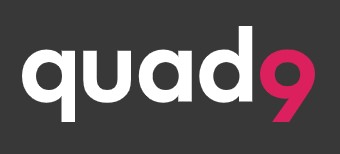 Earlier this year, Germany’s largest Internet providers agreed to voluntarily block pirate sites as part of a deal they struck with copyright holders.
Earlier this year, Germany’s largest Internet providers agreed to voluntarily block pirate sites as part of a deal they struck with copyright holders.
These blockades, which are put in place following a thorough vetting process, are generally implemented on the DNS level. This is a relatively easy option, as all ISPs have their own DNS resolvers.
DNS blocking is also easy to circumvent, however. Instead of using the ISPs’ DNS resolvers, subscribers can switch to alternatives such as Cloudflare, Google, OpenDNS, and Quad9. This relatively simple change will render the ISPs’ blocking efforts useless.
This workaround is widely known, also by copyright holders. As such, it may not be a surprise that a few weeks after the German blocking agreement was reached, Sony Music obtained an injunction that requires DNS-resolver Quad9 to block a popular pirate site.
The injunction, issued by the District Court of Hamburg, requires the Swiss DNS-resolver to block access to an unnamed site that links to pirated music. The name of the targeted site wasn’t revealed, but Canna.to is a likely target, as that’s already part of the ISPs’ voluntary blocking agreement.
Quad9 Appeals Site Blocking Injunction
The Quad9 foundation fiercely opposes the injunction and immediately announced that it would protest it in court. A few days ago, the DNS resolver submitted its appeal to the Court, hoping to overturn the blocking requirements.
The foundation stresses that it doesn’t condone piracy. It is sympathetic to the challenges artists and copyright holders face but enforcing blocking measures through third-party intermediaries is a step too far.
“[W]e strongly believe that recursive DNS is the wrong place to try to apply legally mandated controls, and is at best incorrect, and at worst may be contradictory to the safety of end users as well as damaging the stability of and trust in the global internet,” Quad9 notes.
Quad9 stresses that it has no direct link to the alleged infringements. The targeted site doesn’t even host infringing material. It’s a linking site that points to content stores elsewhere.
The opposition brief sums up a variety of legal and procedural arguments. Among other things, it argues that DNS resolvers are protected from third-party copyright infringements under the German Telemedia Act and the EU’s E-Commerce directive.
Other Options to Stop Piracy
The DNS resolver also argues that Sony Music has better options to stop the infringements. For example, it could spend more effort in trying to track down the site operator, go after its hosting provider, or approach the domain registrar.
Targeting a single DNS resolver is a targeted measure, the foundation adds. German users can still use several alternatives to bypass the blocking measures, for example. At the same time, Quad9 users in other countries are affected by this German order, which makes it too broad.
“The fact that the respondent cannot implement the requested blocking limited to the territory of Germany means that this order is disproportionate,” Quad9 writes.
Quad9 Implemented a Blocking “Hack’
Although Quad9 disagrees with the blocking injunction, it implemented a temporary “hack” to comply with the order. This allows it to limit the blocking measures to German IP-addresses. However, this comes at a significant cost to the non-profit organization.
“The Quad9 platform was not designed for targeted, jurisdictionally based blocking, so this specific blocking causes higher load for those systems. We have brought more resources online to try to offset the costs of the blocking, but this detracts from our stated mission goals,” the foundation writes.
After the blocking order was made public, Quad9 received support from various sides, including the Society for Civil Rights (GFF) and the German Internet Industry association eco, which both provided advice and assistance.
Web Browsers Could be Next
Quad9 is open to further support from companies and the public at large. The foundation stresses that this is much more than an isolated case. If the current ruling stands, other companies can be affected too.
In theory, similar claims could be made against other software and services that are involved in accessing websites. This means that web browsers and VPN services could be next.
“Web browsers, anti-virus software, firewalls, spam filters, email clients, VPN providers, and many other intermediate software and infrastructure components too numerous to list are implicated as potential next targets..,” Quad9 warns.
—
A copy of Quad9’s full appeal brief is available here (pdf, German), and an English machine translation can be found here (pdf).
From: TF, for the latest news on copyright battles, piracy and more.
0 Commentaires